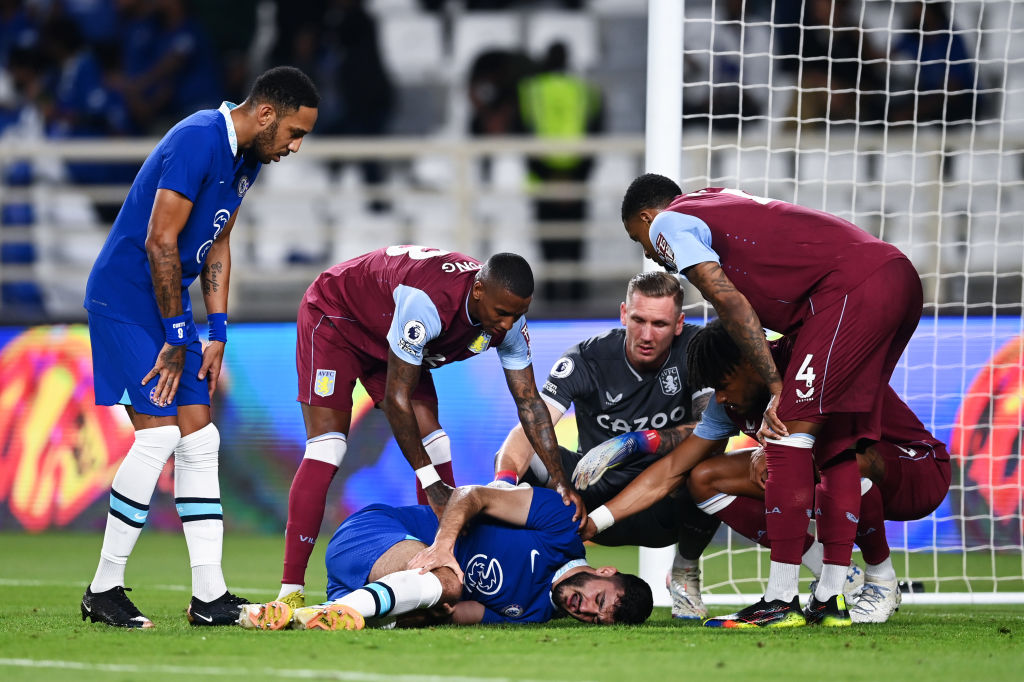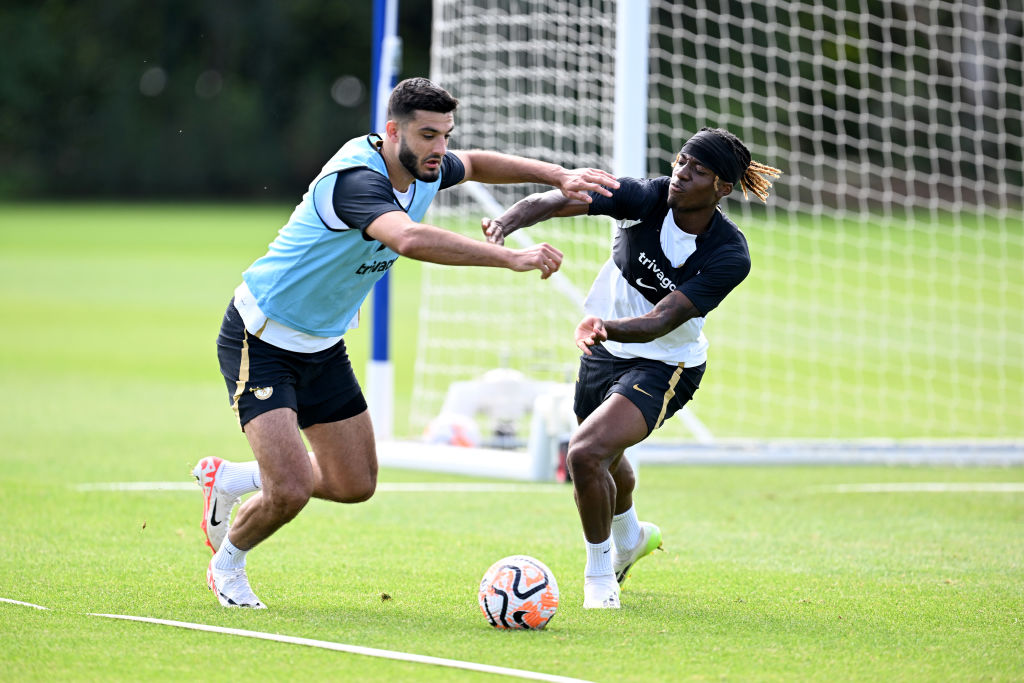
Armando Broja is expected to be feature in a game for the first time in 10 months with his recovery from injury said to be complete.
His last competitive match was Chelsea’s 1-0 defeat at in November 2022, with the 22-year-old subsequently suffering a serious knee injury in a friendly against during the break.
The injury ruled Broja out for the rest of the season and though he returned to light training over the summer, he is yet to be involved with the first team so far this season.
Mauricio Pochettino has spoken out about the importance of not rushing the centre-forward’s rehabilitation, as there are high hopes that he will play a crucial role for the Blues when he returns.
Alongside Nicolas Jackson, Broja is the only natural striker in the squad, with the club swatting away interest from the likes of AC Milan and West Ham to keep him at Stamford Bridge.
And it appears that Chelsea will not have to wait long to see him back on the pitch, with the president of the Albania Football Association claiming his ‘ready to return’.
‘Broja has completed the recovery phase,’ Armando Duka told Euronews following Albania’s victory over Poland on Sunday.

‘We expect him to be on the bench with Chelsea this week, that is, ready to return to the field. He should normally be back in October for the Czech Republic game.
‘He is an added value for us. One of the best Albanian footballers, so he will help us.’
Though he may not actually play, it seems that Broja should at least be on the bench for Chelsea when they travel to Bournemouth this Sunday.
The Blues could do with his help, as while performances have been good under new boss Pochettino, a lack of clinicalness has resulted in just one win from their opening four league games.
Broja may only have one senior goal for the West Londoners, but impressive loan spells at Vitesse and Southampton have proven he has got talent and potential in adundance.
With four goals in 17 caps for his country, and as mentioned will be key for their chances of qualifying for Euro 2024, with Albania currently top of their group but only narrowly ahead of Czech Republic, Moldova and Poland.
, . , and .




















